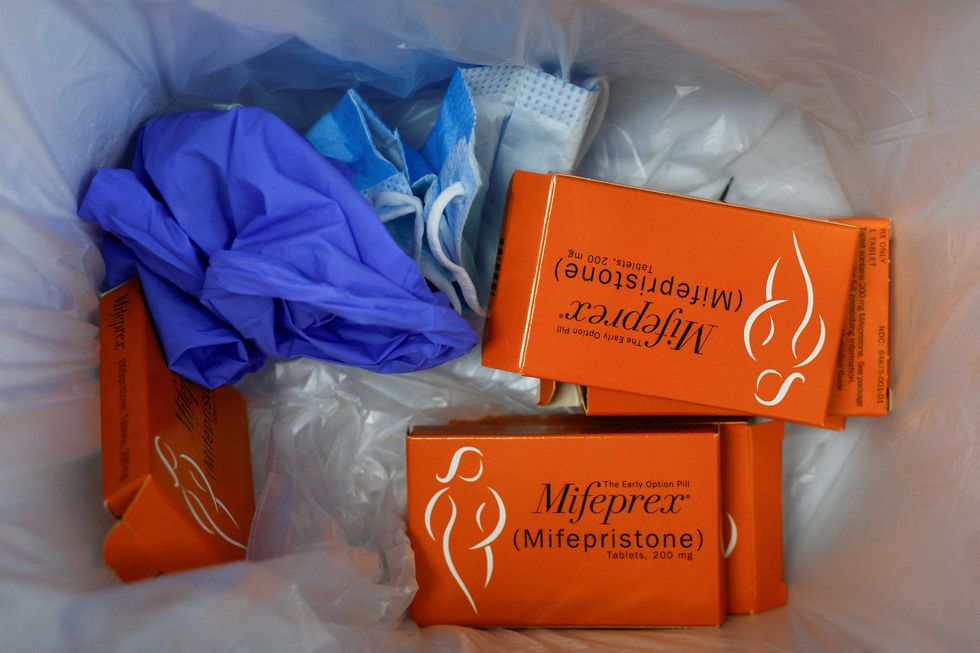Science
Trump Administration Investigates Abortion Pill Traces in Wastewater

The Trump administration investigated the potential for detecting traces of the abortion pill mifepristone in wastewater. Senior officials from the Environmental Protection Agency (EPA) initiated this inquiry during the summer of 2023, following a request from 25 Republican members of Congress. The aim was to determine whether mifepristone could be contaminating water supplies and to explore possible testing methods.
This request emerged from a letter spearheaded by Republican lawmakers including Sen. James Lankford and Rep. Josh Brecheen. According to a report by The New York Times, this action is seen as a significant move by anti-abortion activists who are seeking to restrict access to mifepristone, a medication used in more than 50 percent of abortions in the United States.
The EPA’s exploration of wastewater testing represents a “highly unusual request,” as noted by anonymous sources familiar with the discussions. The potential development of new testing methods could have broader implications for the ongoing debate around reproductive rights in the U.S.
Following the Supreme Court’s decision to overturn Roe v. Wade, access to mifepristone has become a focal point for anti-abortion advocates. Recently, some of these activists expressed frustration with the Food and Drug Administration (FDA) for approving a generic version of the medication. Mifepristone is not only utilized to terminate pregnancies but is also prescribed to manage high blood sugar levels in patients with Cushing’s syndrome.
Critics argue that the idea of mifepristone contaminating water supplies lacks scientific backing. Environmental experts have dismissed these claims, asserting that there is no evidence supporting the notion that abortion pills pose a risk to public water systems. As noted in the report, women using mifepristone may pass fetal remains during the process, but this does not necessarily translate to environmental contamination.
The ongoing scrutiny of mifepristone reflects the heightened tensions surrounding reproductive health policies in the United States. As the political landscape continues to evolve, the implications of these investigations and the responses from both sides of the debate may have lasting effects on access to reproductive healthcare and environmental policies alike.
-

 Technology5 months ago
Technology5 months agoDiscover the Top 10 Calorie Counting Apps of 2025
-

 Technology3 weeks ago
Technology3 weeks agoOpenAI to Implement Age Verification for ChatGPT by December 2025
-

 Health3 months ago
Health3 months agoBella Hadid Shares Health Update After Treatment for Lyme Disease
-

 Health4 months ago
Health4 months agoAnalysts Project Stronger Growth for Apple’s iPhone 17 Lineup
-

 Health4 months ago
Health4 months agoErin Bates Shares Recovery Update Following Sepsis Complications
-

 Technology5 months ago
Technology5 months agoDiscover How to Reverse Image Search Using ChatGPT Effortlessly
-

 Technology3 months ago
Technology3 months agoElectric Moto Influencer Surronster Arrested in Tijuana
-

 Technology5 months ago
Technology5 months agoMeta Initiates $60B AI Data Center Expansion, Starting in Ohio
-

 Technology2 months ago
Technology2 months agoDiscover 2025’s Top GPUs for Exceptional 4K Gaming Performance
-

 Technology5 months ago
Technology5 months agoRecovering a Suspended TikTok Account: A Step-by-Step Guide
-

 Health5 months ago
Health5 months agoTested: Rab Firewall Mountain Jacket Survives Harsh Conditions
-

 Lifestyle5 months ago
Lifestyle5 months agoBelton Family Reunites After Daughter Survives Hill Country Floods




















